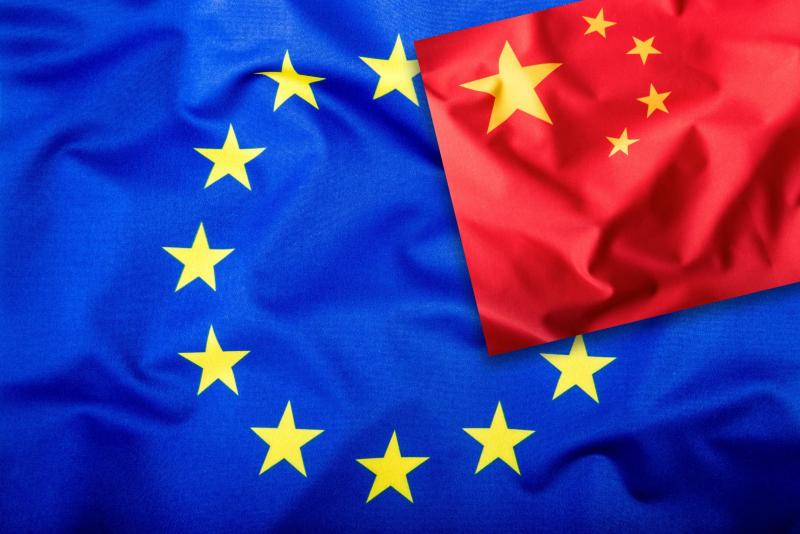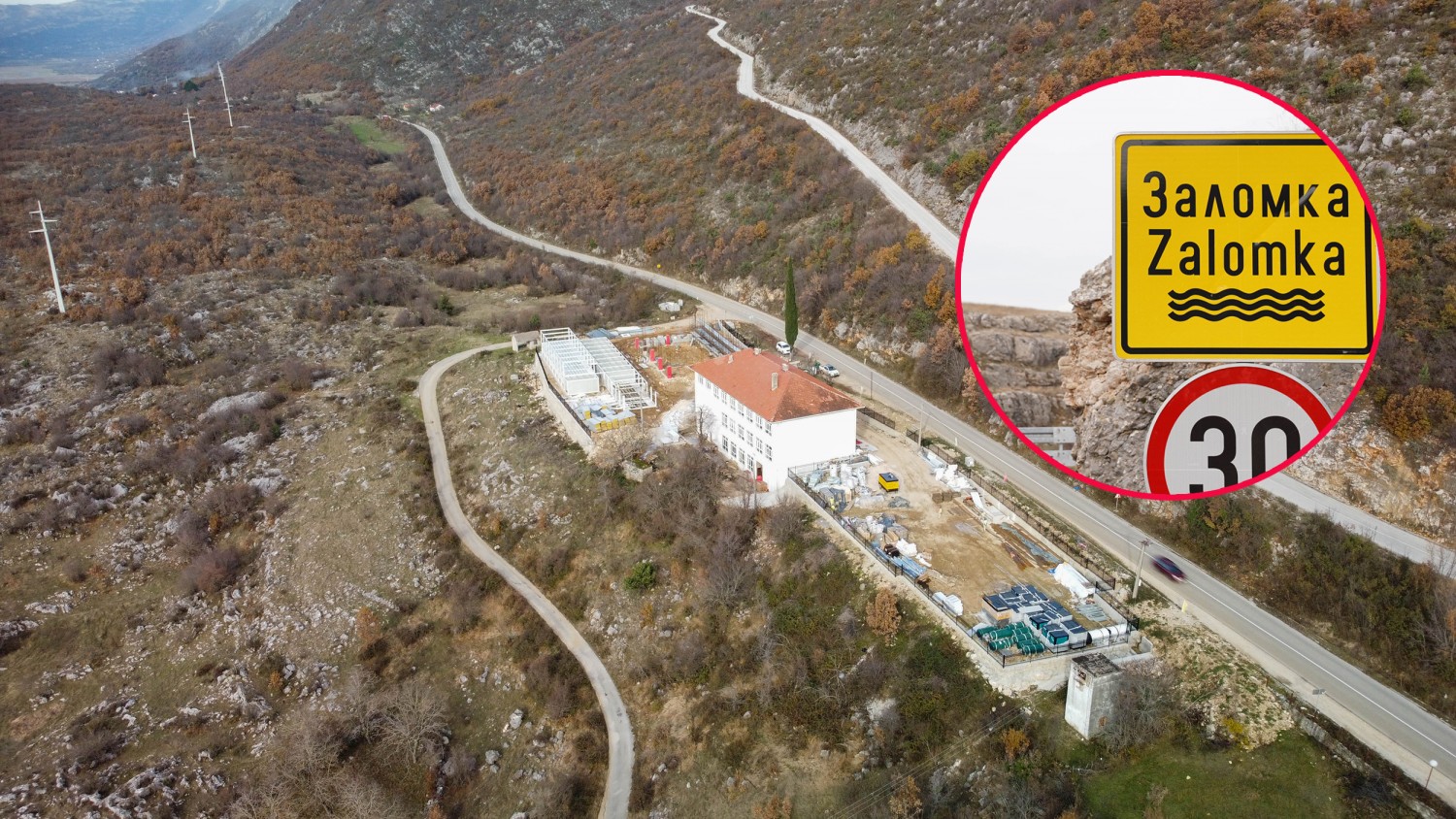Žurnal in English
WHAT ARE ANALYSES REVEALING: Chinese influence is pushing the Western Balkan countries away from the European Union
In their analysis of China’s influence in the region, the Konrad Adenauer Foundation and Wilfried Martens Centre for European Studies underline that the strengthening of China’s influence in the Western Balkan countries is causing increasingly greater headaches for the European Union, and they warn that the growing influence of China in the countries of the Western Balkans is actually distancing these countries from the EU membership. At the same time, the president of the BiH entity Republika Srpska Milorad Dodik, who is declaratory in favor of BiH’s European path, evaluates the cooperation with the Chinese as “good”, stressing that he is “completely convinced that it will be continued”.

The German government is implementing the policy of “de-risking” when it comes to China, meaning the policy to reduce economic dependence, said the authors in their report before the Munich Security Conference. It has started with the Corona virus pandemic, when the supply chains between Germany and China had collapsed during the lockdown, and that policy has gained momentum by termination of the long-term energy dependency on Russia.
It has been known that the European Union is introducing stricter investment verification rules for Chinese companies. On the other hand, the authorities in Bosnia and Herzegovina, but also in the region, are not following the European Union in this respect.
All of this is raising concerns in the European Union which is expect to open accession negotiations with Bosnia and Herzegovina. In the analysis of China’s influence in the region, which was published last year, the Konrad Adenauer Foundation and Wilfried Martnes Center for European Studies underline that the strengthening of China’s influence in the Western Balkan countries is causing increasingly greater headaches for the European Union and they warn that the growing influence of China in the countries of the Western Balkans is actually distancing these countries from the EU membership.
As reported by euractiv.hr the reason lies in the fact that strong Chinese influence is no in line with the EU acquis in a number of areas, especially in the segment of the rule of law, free movement of goods, public procurement, commercial law and media freedoms. Chinese influence also adversely affects preparedness of these countries for membership in the EU in terms of numerous standards, such as food safety and phytosanitary policy, as well as environment protection and taxation.
Furthermore, it is highlighted that the EU is particularly worried by the security aspect of the proliferation of Chinese influence in the region, which has notably risen to the fore after the Russian aggression on Ukraine, during which Beijing continued to reinforce relations with Moscow. It has been warned that the Chinese influence in the region has strongly grown over the last decade, and that it is particularly strong in Serbia and in BiH, primarily in Republika Srpska. They have expectedly pointed to the loans given by the Chinese national companies, which threaten to create debt dependence on China.
NON-TRANSPARENCY, FAVOURITISM, PRICE RAISING…
This is not the first time that analyses have warned about the dangers of Chinese influence. As a reminder, Žurnal wrote about the fact that several analyses and investigations show that, although there is little concrete evidence of malignant Chinese influence, Chinese affairs in Bosnia and Herzegovina prove that Chinese economic investments are intertwined with politics, and their non-transparency encourages the already widespread corruption in the country.
 CHINA IN BOSNIA AND HERZEGOVINAEconomic Interests and Strategic Positioning in the Region?
CHINA IN BOSNIA AND HERZEGOVINAEconomic Interests and Strategic Positioning in the Region?
The authorities in the BiH entity Republika Srpska cannot be bother with that all thus they continue the cooperation with Chinese partners, but also deepen it. Entity president Milorad Dodik, who is declaratory in favor of the BiH’s European path has recently, at a reception organized by the Chinese ambassador Ji Ping on the occasion of the Chinese New Year and his departure from BiH, evaluated the cooperation with the Chinese as “good”, emphasizing that he is “completely convinced that will be continued”.
He thank the Chinese people, Chinese president Xi Jinping, and added: “We had the opportunity to use the platform “Belt and Road” and to build “Stanari” thermal power plant, which is one of the biggest investments not only after the war, but in the last 50 years, which has been built by Chinese technology that proved to be the best. And not only that; hospitals are built, road constructed...a hospital in Doboj should be opened in May.”
The media excessively covered this and many other projects. Controversies, suspicion of corruption and favoritism, non-transparency, delays, activists’ protests, failed projects…-all of these are features of the projects involving Chinese companies.
This time Dodik specifically boasted with the construction of hospital in Doboj that should be opened soon. However, this project is also one of the best indicators why the Chinese business affairs in BiH are controversial. As reported by CAPITAL, a Contract on the construction and furnishing of the new hospital building in Doboj, worth BAM 88.568.717,58 without VAT, was signed in March of 2019 between the Government of Republika Srpska and the companies China Sinopharm International Corporation and Shanxi Construction Investment Group.
The construction deadline, under a turnkey principle, was 36 months. However, instead of the hospital being completed within that period and for the agreed amount, the Chinese companies received a preferential treatment by being repeatedly allowed to exceed the given deadlines and by subsequently receiving other works that were not set forth by the original contract, and it all resulted in allocation of additional citizens’ money.
Yet another contract was recently concluded with Chinese companies, worth BAM 878.798 with VAT, for the construction of the Intensive Care Service for non-surgical branches and the central CO2 supply system in the hospital.
“It is a sort of compensation, because according to our information the Chinese partner has asked additional money for the construction of hospital, justifying it with inflation”, wrote CAPITAL last year.
Lawsuits are being filed for non-transparency of projects involving Chinese partner, Valter reports. The Center for the Environment from Banja Luka filed a lawsuit with the District Court in Trebinje against Elektroprivreda RS due to the secrecy of the contract on the construction of the Dabar Hydro Power Plant with Chinese partners and the concealment of the loan agreement.

This is, namely, the epilogue of several months long dawdle and the attitude of the representatives and institutions of the authorities in the RS towards the public and environmental activists and associations, i.e. the residents of the Nevesinje region, who are justifiably afraid of the future accumulation and submergence of their private lands.
CONTROVERSIAL PREFERENTIAL TREATMENT FOR PROJECTS
The lower levels of government are also not giving up on the cooperation with Chinese partners. The mayor of Istočno Sarajevo, Ljubiša Ćosić, had in February of 2022 signed a Memorandum of Cooperation in the Sarajevo office of the Chinese company Sinohydro, which operates as part of the Power China group, regarding the construction of a tunnel through Trebević, which would connect the municipalities of Istočno Sarajevo. As previously announced, the length of the tunnel would average eight kilometers, and the implementation of the project would cost, according to announcements, around 200 million Euro.
Although this project was not mentioned much in the public after the initial announcements, in a recent interview with Spin Info Mayor Ćosić said that the feasibility study, which was paid for by the Chinese partners, is finished, and that it should be presented to the councilors in the City Assembly soon.
“The tunnel’s future is up to us, because if we don’t talk about the tunnel as a possible connection, everybody will be saying that it is famous, but if we believe that it will be done in the next 10, 15 and even 20 years, then it will be done”, said Ćosić.
The thing that is controversial in this entire project, as reported before, is the fact that it was started non-transparently, and that the Chinese company Sinohydro was favored, although it is known that Sinohydro was poor reputation in the world. For example, the African Development Bank (AfDB) has blacklisted this company and prohibited its participation in all the projects they finance. Fokus reports that China, together with Saudi Arabia, has once again targeted Bosnia and Herzegovina, and the large companies of these two countries have recently initiated the procedure of establishing a joint company in Bosnia and Herzegovina.
The BiH Competition Council, as stated in the decision, approved concentration on the markets for production and sale of heavy steel plates and production and sale of directly reduced iron in Bosnia and Herzegovina to the business entities, the Saudi oil giant Saudi Arabian Oil Company (Aramco) and one of the world’s largest steel producers, Baoshan Iron&Steel Ltd. (Baosteel) from China.
The decision reads that the state fund of the Kingdom of Saudi Arabia, Public Investment Fund Tower, King Abdullah Financial District, is joining them in establishing the company in Bosnia and Herzegovina. According to the decision, the majority owner of the new company in BiH would be the Chinese with 50 percent, while the Saudi oil giant and the fund would each have a 25 percent stake in the company.
The same media outlet reported on numerous Chinese companies that are registered in our country. It was reported that as many as 190 Chinese business entities have been registered on the territory of the FBiH from 2007 until today, and some Chinese companies owe more than half a million in direct taxes. The extent to which the Chinese can, directly or indirectly, influence the daily political events in Bosnia and Herzegovina can best be seen in the example of the construction of Buk Bijela HPP about which we have reported before.
 WHY IS DODIK'S ANXIETY INCREASINGChinese Seek State Property as Collateral for Business in RS
WHY IS DODIK'S ANXIETY INCREASINGChinese Seek State Property as Collateral for Business in RS
Let us recall that the RS Minister of Energy and Mining, Petar Đokić, assessed the requests of the Chinese companies, which submitted bids for the construction of the Buk Bijela HPP, for answers regarding the disputes that are pending before the Constitutional Court of Bosnia and Herzegovina and UNESCO as incorrect.
However, such a move is expected, because the business logic of the Chinese is mostly the same - they are looking for state property with “clean” papers as collateral, and the Žurnal’s interlocutors point out that it is very likely that these kinds of demands are the reason why the state property has become one of the most topical issues in Bosnia and Herzegovina.
(zurnal.info)









